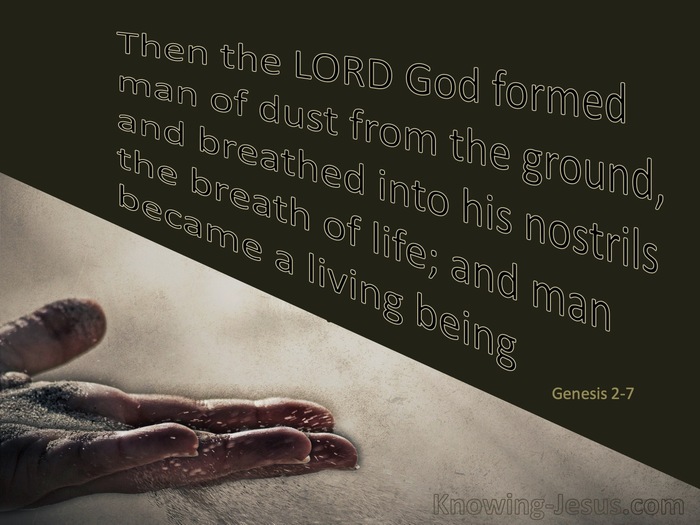

If you feel free to return to the dust you came from go ahead. If your spirit is convicted by the idea of cremation as a type of pagan alignment, then it is not for you. Those final details of our existence are personal and left up to us. He is not focused upon our preferred method of corpse-disposal. God weighs the contents of our hearts to see how we live. Nobody will be demoted to the rubbish pile or forced to forfeit heaven because God couldn’t find all your pieces! Plus, the idea of being reduced to ash is not that far from the original dust we all came from: “By the sweat of your face you will eat bread till you return to the ground, because from it you were taken for you are dust, and to dust you shall return” (Genesis 3:19, NASB). We must conclude then, that God is fully capable of locating all of our parts to reconstruct us as we “meet him in the air” when Jesus returns on resurrection day (1 Thess. He used atoms, molecules, cells and zillions of tiny parts to create every human being who has ever lived. He is the inventor and creator of humankind. What, then, is the answer to the modern-day cremation question? Let us consider a few things using common sense: God is supernatural and omnipotent. Yet, they still buried the royal bones left behind from their blaze.

The deceased were disfigured so badly by their enemies that a handful of compassionate men decided on cremation as a dignified disposal. He died in his paranoid madness lustful for more power and in battle. Saul, the predecessor of David, was an anointed king who lost his way. They buried the bones under a small tree in Jabesh, and for seven days, they went without eating to show their sorrow” (1 Samuel 31:8-13, CEV). They took down the bodies of Saul and his sons, then brought them back to Jabesh and burned them. So one night, some brave men from Jabesh went to Beth-Shan. The people who lived in Jabesh in Gilead heard what the Philistines had done to Saul’s body. They also sent messengers everywhere in Philistia to spread the good news in the temples of their idols and among their people. Then they put his armor in the temple of the goddess Astarte, and they nailed his body to the city wall of Beth-Shan. The Philistines cut off Saul’s head and pulled off his armor. There is, however, one instance where we find a significant cremation: “The day after the battle, when the Philistines returned to the battlefield to take the weapons of the dead Israelite soldiers, they found Saul and his three sons lying dead on Mount Gilboa. Some biblical references of burning a person with fire seem to suggest the type of life they lived - the enemies of God and God’s laws were promptly cremated as a form of capital punishment. Supposedly the essence of the deceased was sent to the afterlife through the smoke of their remains. Bodies of loved ones were wrapped or covered in cloth, scented with herbs their corpses left undisturbed in their caves to return to dust in a natural state.Ĭremation, the burning of the corpse, was a custom only practiced by numerous pagan (demonic) religions in ancient times: the corpse was placed upon towering funeral pyres and set ablaze.

That said, the biblical recordings of funerals explain that God’s people were laid to rest in tombs usually a hewn rock of some sort with a stone seal. The short answer to your question appears to be no, cremation is not a sin. Frankly, the topic is not dealt with at all in terms of the detailed lists of instructions for living and dying set forth by almighty God in the Old and New testaments.

Is cremation a sin? How will the cremated-dead be able to rise when Jesus comes?Ī: In the Bible, cremation is not labeled a sinful practice.


 0 kommentar(er)
0 kommentar(er)
